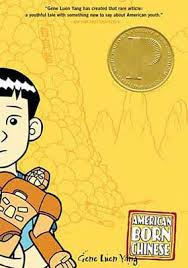
Our first meeting of the CMWR’s Book Club confirmed everyone’s deepest suspicions: middle school was terrible for everyone, international students included. This quarter the CMWR Book Club is reading American Born Chinese, a graphic novel by Chinese-American author, Gene Luen Yang.
The novel weaves together three stories that deal with issues of belonging and the negative cultural stereotypes which confront the main characters as they attempt to fit in.
The monkey king, not allowed to join a (literal) heavenly dinner party because he’s a monkey, decides to forego his identity in order to fit in with a crew of deities. Similarly, a young Chinese American boy named Jin struggles to reconcile his Chinese heritage and American surroundings. In an attempt to fit in, Jin suppresses his Chinese heritage and distances himself from any associations with it.
This sparked a discussion about cross-cultural differences and the struggles to adapt to the American academic lifestyle. Many international students found Jin’s story to be a familiar one but were more concerned with asserting their own heritage by finding and interacting with others in similar situations. This soon grew into a broader conversation of belonging and finding community when placed in a new situation.
Hence, middle school. Remember that? All those terrifying new experiences? While some of us spent our middle school years buried under piles of books and worried about entrance exams, others were suppressing our true interests in favor of making friends. Many students were shocked to find out how relaxing the United States middle school curriculum actually is, and regaled the group with stories of 8 hour home work shifts in elementary school. They cited the differences in the American and East Asian academic systems, where students undergo rigorous schooling in middle school and high school in order to excel in entrance exams and generally only begin to relax during their college years. Basically the opposite of the American educational system.
Another significant point of discussion was how common it is for American high school students to hold part-time jobs while studying. In many East Asian countries this would be impossible, and many students told stories of how understanding and financially supportive their families were during their education. What the international students concluded was that by encouraging part time jobs early on, Americans work to foster a sense of financial independence in their children.
As Jin’s story unfolds, undoubtedly more conversations about school life and the reasoning behind Jin’s choices in navigating a uniquely chinese-american life will emerge and continue to provide us with a better appreciation of the struggle.
Stop by the Book Club on Friday’s at 1:00 pm in Lewis 1600!
By: Monisa and Jenn
Discover more from UCWbLing
Subscribe to get the latest posts sent to your email.

